- Home
- Holly Black
Notebook for Fantastical Observations
Notebook for Fantastical Observations Read online
THE SPIDERWICK CHRONICLES
NOTEBOOK for FANTASTICAL OBSERVATIONS
T. DiTERLIZZI and H. BLACK
Simon and Schuster Books for Young Readers
New York London Toronto Sydney
SIMON & SCHUSTER BOOKS FOR YOUNG READERS
An imprint of Simon & Schuster Children’s Publishing Division
1230 Avenue of the Americas, New York, New York 10020
www.SimonandSchuster.com
This book is a work of fiction. Any references to historical events, real people, or real locales are used fictitiously. Other names, characters, places, and incidents are products of the author’s imagination, and any resemblance to actual events or locales or persons, living or dead, is entirely coincidental.
Copyright © 2005 by Tony DiTerlizzi and Holly Black
All rights reserved, including the right of reproduction in whole or in part in any form.
SIMON & SCHUSTER BOOKS FOR YOUNG READERS
is a trademark of Simon & Schuster, Inc.
Book design by Michael Nelson
The text for this book is set in Rackham Italic.
The illustrations for this book are rendered in pen and ink.
Manufactured in the United States of America
2 4 6 8 10 9 7 5 3 1
CIP data for this book is available from the Library of Congress.
ISBN-13: 978-1-4169-0345-1
ISBN-10: 1-4169-0345-3
eISBN-13: 978-1-442-40359-8
Additional thanks to Michael Nelson for his extraordinary assistance in developing the Notebook for Fantastical Observations’ activities.
For all writers, artists, and readers
— Tony and Holly
Tony DiTerlizzi is the illustrator of the Caldecott Honor–winning The Spider and the Fly as well as the author and illustrator of the Zena Sutherland Award–winning Ted. He and his wife, Angela, reside with their pug, Goblin, in Amherst, Massachusetts. Visit Tony on the World Wide Web at www.diterlizzi.com.
Holly Black is the author of Tithe: A Modern Faerie Tale, which the American Library Association selected as a YALSA Best Book for Young Adults as well as for the YALSA Teens’ Top Ten Booklist. Holly lives in Amherst, Massachusetts, with her husband, Theo. Visit Holly on the Web at www.blackholly.com.
NOTE FROM THE AUTHORS
Dear Readers,
When Tony and I first heard the story of the Grace children, we thought that their experiences were unusual. Since then, however, children and adults alike have contacted us with their encounters with faerie. A few of them are presented in this book along with some exercises that we hope will help you investigate potential faerie activity where you live.
Above all, please remember to be careful. While some faeries are helpful, many are tricksy, and others can be dangerous.
Sincerely,
and
“To protect the house and those inside is MY duty, Guide or no Guide.”
FROM BOOK 5: THE WRATH OF MULGARATH
BROWNIES
I admit I’m a slob. I throw my socks and underwear on the floor. I kick the covers off my bed and sleep on the bare mattress. My hair sticks up from my head like a bunch of crabgrass. I never clean up any of my toys. If something gets broken because I stepped on it, then I just try to avoid that area. Sometimes I forget, but usually there are enough clothes on top that the broken toy parts don’t hurt my feet that bad. But no matter how messy I am, there is always someone messier than me.
My parents don’t understand how I got to be this way. My room used to be neat, my hair combed and my clothes folded. That was when Skifflewhim was my friend. He’s really little, with big hairy ears and pants made from an old leather glove. He would hop around, making my clothes dance themselves into the drawers. My hair would part and braid itself out before I even woke up, so I wouldn’t notice if he worked on the tangles. My dolls would march right onto the shelves.
And all I had to do was leave out some scraps from dinner.
Skifflewhim liked everything I didn’t. He would eat my brussels sprouts, my beets, and the liver my mom would fry with onions. I guess it was because he ate all that stuff that I started to wonder what he wouldn’t eat. I left out a raw onion and he ate it. I left out a bunch of worms I dug up out of the yard and he ate those too. Finally, I thought of the most disgusting thing I could: kitty litter.
When I came back from school, my bed was unmade and the litter was thrown all over my room. Some of it was even in my sheets. Since then, I haven’t seen Skifflewhim once, even when I left out a drumstick with only one bite taken out of it. But although I don’t see him, I know he’s there. Books sometimes just fall off the shelves. Lightbulbs burn out extra fast. My clothes are ripped and my homework goes missing.
So, you see, I have to be as messy as possible. That way he can’t make it any worse. Until I figure out a better idea, that’s what I’m going to do.
—Kelly L.
ANALYSIS: Brownies are known to be helpful, but if angered they can turn into troublesome boggarts. This appears to be a case of such a transformation.
—H. B. & T. D.
I imagine this creature helping me with chores around my house:
Here’s what else I know about it:
__________________________________________________
__________________________________________________
__________________________________________________
__________________________________________________
__________________________________________________
__________________________________________________
__________________________________________________
__________________________________________________
Things I can’t see, but I know are there:
1.
2.
3.
4.
5.
6.
7.
8.
9.
10.
11.
12.
13.
Things I see, but I know aren’t there:
Food I would leave for a house brownie:
1.
2.
3.
4.
5.
6.
7.
8.
9.
10.
11.
12.
13.
Food I would not leave for a brownie:
1.
2.
3.
4.
5.
6.
7.
8.
9.
10.
11.
12.
13.
A drawing of my room when it’s a mess:
A drawing of my room after being cleaned by a brownie:
A floor plan of my house showing locations of possible brownie activity:
“The difficulty, of course, is the poison.”
FROM BOOK 5: THE WRATH OF MULGARATH
DRAGONS
Sometimes my brother, Ross, and I hunt for bugs in the old woodpile behind the house. You can find huge black beetles, little pill bugs that curl up into pale gray balls, earwigs with scary pincers, and occasionally blind and twisting worms that you can cut in half to make two short ones.
We like to make the bugs fight inside a cup, but they won’t always attack one another, even if you shake them around. Once we took a bucket and gave two click beetles and a worm a place to live, but the next day the click beetles were gone and the worm was dead. Mostly, the fun part is finding and catching the bugs.
Ross held up his hand. Tiny tooth marks indented the pinkish skin. It didn’t look that bad, but his eyes were all watery and I thought he was going to cry.
“Get something to slide under the bucket,” I said to distract him.
He went into the house and came back a few minutes later with flattened cardboard. We pushed it under the bucket fast and then flipped the whole thing over. I scanned the grass in case it got away and Ross kicked the sides of the bucket to knock it off the ceiling or the walls. Then we pulled off the top.
The little black lizard was in there, looking small and harmless against all that white plastic.
“Cool,” I said.
We brought the bucket inside and I watched the lizard while my brother cleaned out an old fish tank from the basement. He filled the bottom with dirt from outside and taped the lighted top on tight enough so that the lizard couldn’t get out through any of the openings. We dumped the lizard in the tank and watched it for a couple of minutes. Then Mom called us to do some chore and I didn’t think about the lizard again until that night, when Ross complained that his arm hurt.
I was already in bed, so I turned over and looked at him. His arm was hidden in the sleeve of his pajamas. “Does it hurt real bad?” I asked.
“Yeah,” he said, his voice thinning to a whine.
“Where does it hurt?” I asked.
“All over,” he said.
I was unimpressed with that answer. I mean, come on. Shouldn’t he at least know where it hurts? That was the kind of answer I gave when I wanted to stay home from school, but wasn’t sick. I yawned. “See if it feels better in the morning,” I said, then turned over and went to sleep.
I woke up to see my mother sitting on Ross’s mattress. She had him out of his pajama top and I could see thin threads of red and black running up and down his arm. The forearm and hand looked small and wrinkled—shrunken. He was crying and I felt bad and also, pretty scared. I didn’t say anything to him and he didn’t tell Mom about what I’d said the night before.
After she left to take him to the hospital, I took the fish tank outside, dumped out the lizard, and stomped on it until it was mush.
—Gavin G.
ANALYSIS: Even when a dragon is small, its poison can be very potent. The efficacy of the poison increases with the size of the dragon, so it was best the creature was encountered when still small.
—H. B. & T. D.
If I caught this creature:
Here’s what else I know about it:
__________________________________________________
__________________________________________________
__________________________________________________
__________________________________________________
__________________________________________________
__________________________________________________
__________________________________________________
__________________________________________________
Instructions for capturing a small dragon:
Instructions for releasing a small dragon:
A diagram of the terrarium in which I would keep a pet dragon:
Sketches of two locations where dragons may be found:
“We will rebuild the world in silver and copper and iron.”
FROM BOOK 4: THE IRONWOOD TREE
DWARVES
I have this ball from when I was a kid. It’s made from pure gold that shines like the sun. If you put your fingers just right on the surface and turn it—just so—the ball will open up. Inside is a jump rope of silver filigree as fine as a skein of thread and an eight-sided die with drawings on each side for a game I only half-remembered. People ask me if it’s real. They ask me where I got it, too, but I never tell them.
I used to have this friend who went by the name of Soltieg. I never saw him at school, but sometimes I’d see him around the neighborhood and then we would play games that none of the other kids knew. He was short, with black hair that stuck up from his head at odd angles and that he would tug at when he was nervous.
Sometimes he would come over to my house. We would microwave pizza bagels and watch television. He really loved cartoons and we’d spend hours watching the tube or playing with action figures in front of it. But after a while I wanted to go to his house. At first he made excuses.
“My house is too far away,” Soltieg said.
“Then why are you always around here?” I asked him.
He pulled on his hair. “We don’t have a television.”
I shrugged.
He sighed. “My parents wouldn’t like it.”
“Fine,” I said, but the way I said it, he could tell that it wasn’t fine.
A week later he gave in and told me he was going to take me to his place. We cut through my neighbor’s backyard and the woods behind their house. We lived beside some steep hills, but as the road snaked upward, Soltieg led me up to the edge of the rocks where there were no houses.
“Where are we going?” I asked.
He pointed to a shadowed area and an entrance to what looked like a cave. I forgot all about going to his place. A cave! That was about the coolest thing I could imagine. It was damp and a little chilly inside, but I didn’t mind. I thought of making a fort or a clubhouse with lots of rules about who got in. I was just thinking up what the first rule should be when I noticed that there were torches flickering in the gloom. They burned with a strange blue fire.
“This is where I live,” Soltieg said. “I’ll take you all the way in if you promise not to tell anyone about it and promise that you won’t try and bring anything from inside of the cave back out.”
“Sure,” I said. “No problem.”
He led me into a vast cavern. There was a whole city inside, made from gleaming gold and shining silver. Gems as large as grapes ornamented spires and hung from bronze trees as though they really were fruit. Overhead, even the distant ceiling of the cave had been painted with gold and hung with opals that mimicked stars. Occasionally a mechanical butterfly would fly by, its wings rising and falling in time with the key unwinding at its side. As I walked through the streets cobbled with marble, I noticed that all the inhabitants of this strange city were shorter than I was—even the ones with beards.
Soltieg brought me to his home, which was a modest house on a sloping street, but still crafted from stone so polished that it reflected like a mirror. The whole place was topped off with a roof of glinting copper. He took me inside and we played a dice game with rubies, a board game where the pieces were warriors blown from glass, and a card game with cards that were etched in gold.
His mother brought us dishes of things I couldn’t identify dressed in unfamiliar spices and with many sauces. Despite not usually being a fan of weird food, I ate all of mine.
Before I knew it, it was time to go back. I didn’t want to go. It didn’t seem fair that Soltieg got to live in a magical place. Even though his mother told me I could come again tomorrow, I found myself overcome with anger and envy.
I slipped the golden ball into my pocket. It wasn’t that I forgot about my promise; it was just that I figured the promise meant I better not get caught. I deserved it anyway—he had all of this; why should he miss one little toy? Following Soltieg to the ent
rance, the golden ball seemed hot in my sweaty grip, but to tell him now would get me in too much trouble. I said good-bye and Soltieg said good-bye back, but his voice was sad and one of his hands tugged at his hair.
After that, I never saw him again. When I went to try to find the cave, the stone was solid. There was no entrance into the mountain.
All I had was the golden ball.
—Eric N.
ANALYSIS: Dwarves are fine metalworkers with a deeply felt sense of honor.
—H. B. & T. D.
An odd little creature I’ve seen around my neighborhood:
Here’s what else I know about it:
__________________________________________________
__________________________________________________
__________________________________________________
__________________________________________________
__________________________________________________
__________________________________________________
__________________________________________________
__________________________________________________
My three favorite
Promises I’ve made:
__________________________________________________
__________________________________________________
__________________________________________________
__________________________________________________

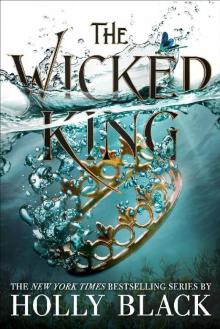 The Wicked King (The Folk of the Air #2)
The Wicked King (The Folk of the Air #2)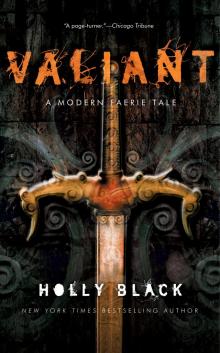 Valiant
Valiant The Coldest Girl in Coldtown
The Coldest Girl in Coldtown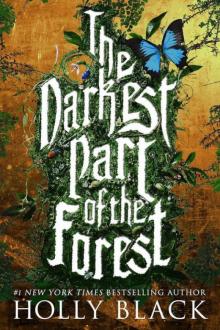 The Darkest Part of the Forest
The Darkest Part of the Forest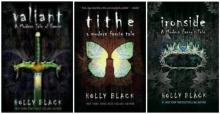 Tithe
Tithe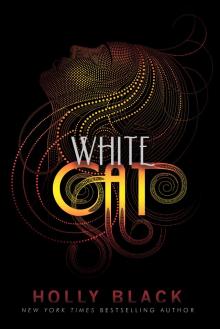 White Cat
White Cat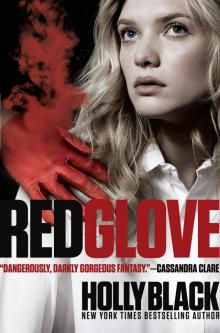 Red Glove
Red Glove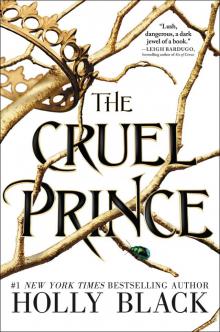 The Cruel Prince
The Cruel Prince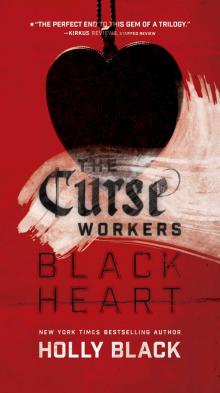 Black Heart
Black Heart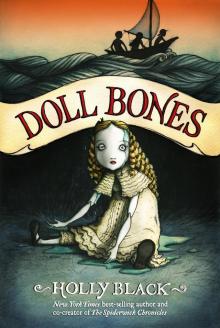 Doll Bones
Doll Bones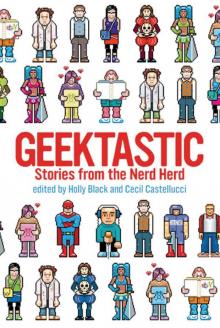 Geektastic: Stories from the Nerd Herd
Geektastic: Stories from the Nerd Herd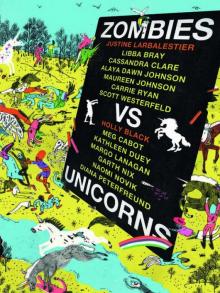 Zombies Vs. Unicorns
Zombies Vs. Unicorns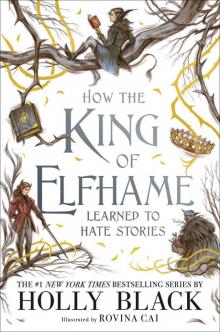 How the King of Elfhame Learned to Hate Stories
How the King of Elfhame Learned to Hate Stories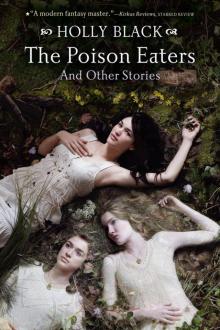 The Poison Eaters and Other Stories
The Poison Eaters and Other Stories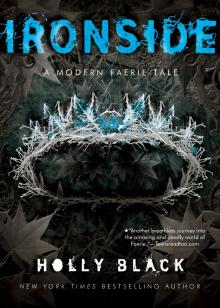 Ironside
Ironside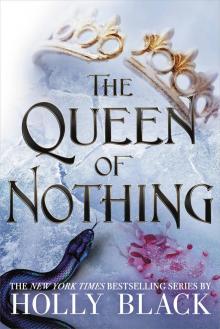 The Queen of Nothing
The Queen of Nothing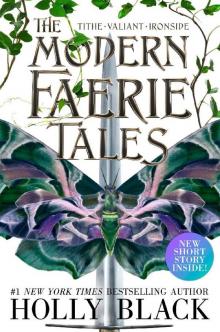 Modern Faerie Tales
Modern Faerie Tales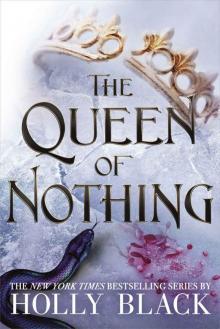 The Queen of Nothing (The Folk of the Air #3)
The Queen of Nothing (The Folk of the Air #3)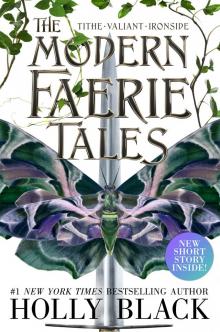 The Modern Faerie Tales
The Modern Faerie Tales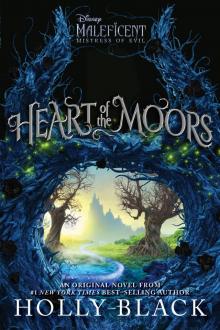 Heart of the Moors
Heart of the Moors The Golden Tower
The Golden Tower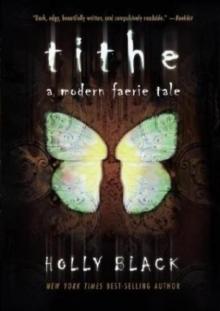 Tithe mtof-1
Tithe mtof-1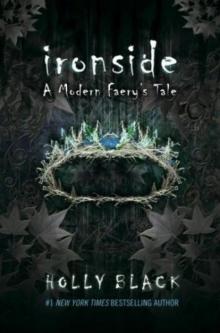 Ironside mtof-3
Ironside mtof-3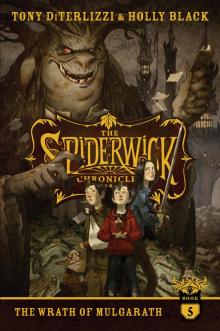 The Wrath of Mulgarath
The Wrath of Mulgarath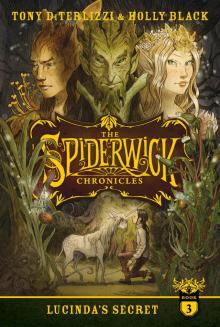 Lucinda's Secret
Lucinda's Secret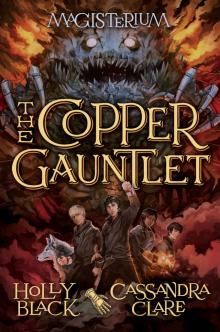 The Copper Gauntlet
The Copper Gauntlet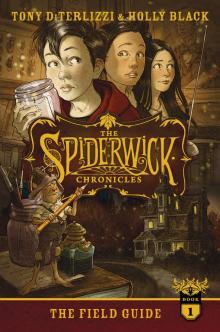 The Field Guide
The Field Guide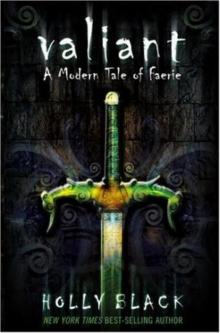 Valiant mtof-2
Valiant mtof-2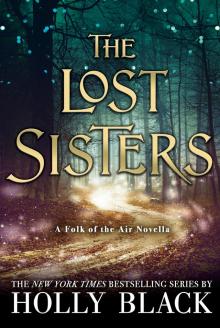 The Lost Sisters
The Lost Sisters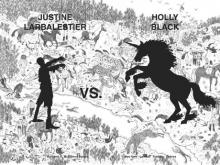 Zombies vs. Unicorns
Zombies vs. Unicorns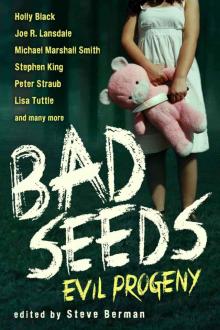 Bad Seeds: Evil Progeny
Bad Seeds: Evil Progeny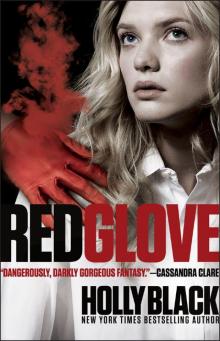 Red Glove (2)
Red Glove (2)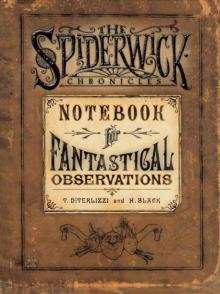 Notebook for Fantastical Observations
Notebook for Fantastical Observations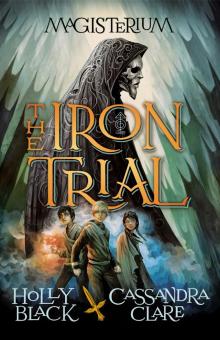 The Iron Trial
The Iron Trial Welcome to Bordertown
Welcome to Bordertown